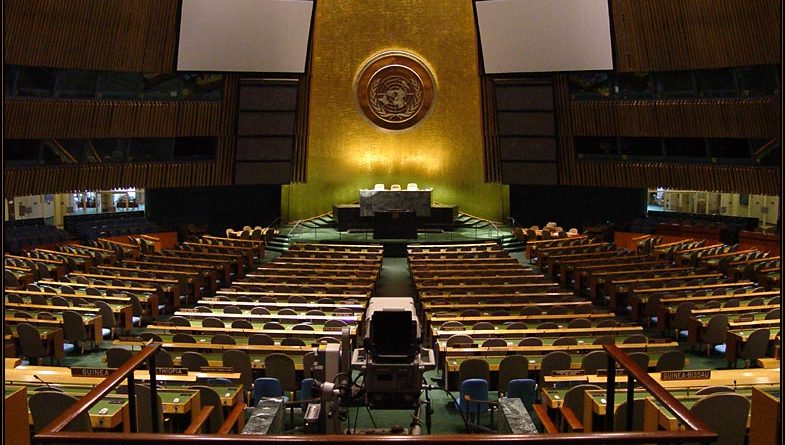The United Nations is Broken
By Mark Gorman
Staff Writer
According to the United Nation’s Charter, the UN was established with four goals: to maintain international peace and security, to develop friendly relations among nations, to achieve international cooperation, and to be a center for harmonizing the actions of nations.
More than 70 years later, the ability of the UN to achieve any of these goals is questionable at best. The Syrian Civil War, the continued flaunting of international law by an increasing number of nations, and the Ukrainian Civil War are merely the latest examples of this.
So, can the UN achieve these goals at all? Yes, although not as the organization stands right now.
The first area that needs reform is the United Nations Security Council (UNSC). The UNSC is structured so that the United States, Russia, China, Britain, and France have permanent member status. The remaining 10 are chosen by elections in staggered 2-year terms.
The permanent members are also given veto power over any substantive resolution in the UNSC. This ensures that any resolution is subject to the veto of a permanent member.
The Syrian Crisis is a good example of the veto system. According to World Politics News Review, a vote held to condemn Syria’s crackdown on opponents of the regime ended with the resolution vetoed by Russia and China.
World Politics went on to say that, “if any of these five members votes against a Security Council resolution, the resolution is automatically defeated.” How can this be fixed? Well, there are a few ways.
Some improvements could include moving the veto power from a single member state to the Secretary-General of the United Nations, changing the permanent member status, or getting rid of the power altogether.
The organization could also change the Security Council, so that every member is voted in by the United Nations General Assembly. There are many options to choose from; however, they seem unlikely as even these options require the approval of the five permanent members.
Another issue with the UN is its bureaucratic red tape. According to Anthony Banbury in an opinion piece in The New York Times, “it takes on average 213 days to recruit someone. In January, to the horror of many, the Department of Management imposed a new recruitment system that is likely to increase the delay to over a year.”
This is a major issue as a rapid response is necessary for the UN to act as originally intended, and any hindrance to the organization is a hindrance to its mission.
Mr. Banbury suggests that to fix the bureaucracy problem, change needs to start at the personnel system through intense audits, caps on operational expenses, and independent panels for recommendations on change and budget allocation.
The UN General Assembly is another troubled spot. The New York Times discusses the opening session of the General Assembly each year, reporting that, “the event offers plenty of star power, but critics contest that it is little more than a glorified gabfest.” While bilateral agreements often result from the UNGA’s meetings, larger cooperation is often lacking.
Beyond some budgetary decisions, the UNGA is more of a political debate field. This is another area where reform can do some real good.
Rather than lay all the responsibility of decisions on the Security Council, some of the most important issues would be better addressed at the General Assembly.
Allowing every nation a single vote with no veto power would create a better representation of the international community as a whole. Instead of being a symbolic body, if it was given some actual power, the UNGA could be a much more unifying force than it currently is.



